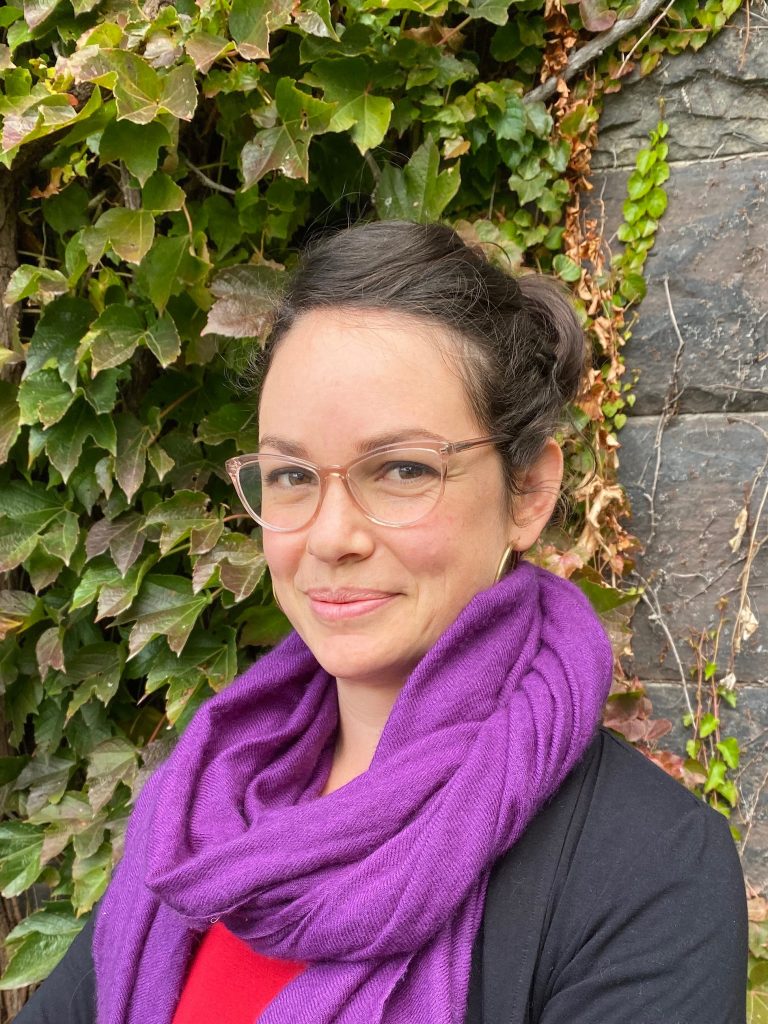DLSPH Professor Untangles Politics of HIV Prevention Drug Implementation in Peru
September 17/2020
by Françoise Makanda, Communications Officer
DLSPH Prof. Amaya Perez-Brumer has won funding for early-career researchers where she will explore the politics surrounding the dissemination and uptake of PrEP (pre-exposure prophylaxis), an HIV prevention drug, in Peru.
Specifically, while Peru is making advances in PrEP science, it is experiencing delays in health policy implementation.
“PrEP is a remarkable therapeutic strategy to prevent HIV,” says Perez-Brumer, an assistant professor in Social & Behavioural Health Science. “However, while more and more PrEP research continues to be done in the global South, there is limited drug availability outside of research contexts. This deep inequity in HIV prevention efforts is not unique to Peru, but rather reflects larger tensions in global HIV health politics.”

Amaya Perez-Brumer wins Connaught New Researcher Award.
With the support of U of T’s Connaught New Researcher Award, Perez-Brumer is working on a book project assessing the political economy of large-scale HIV biomedical prevention research conducted among people of diverse genders and sexualities, specifically in the global South. More broadly, Perez-Brumer wants to highlight the complexity of outsourced research processes and its impact on local communities.
“It’s not just the politics of how the science is done and among whom, but also the politics of what happens once the temporary research studies end,” she says.
Her research will include the lived experience of those participating in and conducting the trials, along with that of Peruvian policymakers, who can shed light on the integration PrEP delivery into the public health system.
Despite participating in research trials, Peruvians often struggle for access to pharmaceuticals outside of research. Today, only name brand PrEP is approved for use in Peru, but it has not been incorporated into the Peruvian public system. Yet countries like Brazil are using generic versions of the treatment in large-scale public health programs. Part of the Connaught grant is to examine the barriers to generic patents in Peru to strengthen a pathway for generic drug approval.
The country is a hotspot for PrEP research since the implementation of iPrEX, the largest PrEP study between 2007 and 2011, of which half of the global sample came from Peru. The research conducted in Peru has led to changes in the WHO guidelines and follow-up PrEP accessibility and implementation studies. However, Peruvians do not have access to affordable and sustainable PrEP through public institutions.
“The global South is increasingly utilized as a living laboratory to advance therapeutic innovation and testing, yet, the beneficiaries of these drug technologies frequently reside in the global North,” says Perez-Brumer. “This work will examine the difficult balance between ethics in human subjects’ experimentation, innovation, and access.”
Perez-Brumer has been working in Peru for over a decade. Due to the ongoing pandemic, she won’t be able to conduct the research in-person but will be doing interviews on-line with the support of local researchers at the Universidad Peruana Cayetano Heredia and Féminas, a grassroots transgender organization.